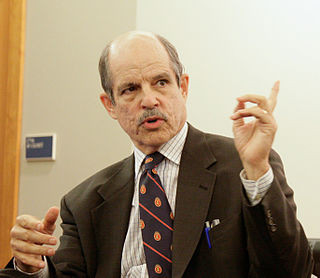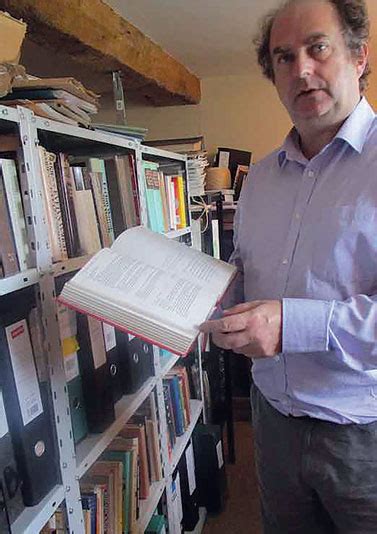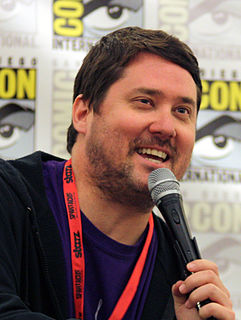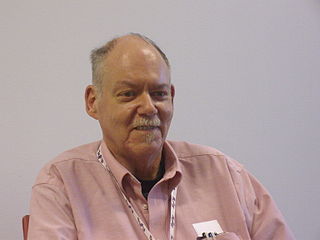Top 461 Encountered Quotes & Sayings - Page 8
Explore popular Encountered quotes.
Last updated on April 16, 2025.
I feel a disparity between my life in India within the home and my life outside the home - my life within public and private space. In terms of here and there, there were some differences, but New York and India were very different when I was growing up in the '80s. Definitely in terms of the visual and popular culture I encountered within my home - that was very different from the complete lack of representation I saw of South Asian culture outside of that space.
All this [Soviet labor camp for political prisoners] brings about one marked change in your physical appearance; by the end of your first year, you will have what are known as 'zek's eyes.' The look in a zek's eyes is impossible to describe, but once encountered, it is never forgotten. When you emerge, your friends, embracing you, will exclaim: 'Your eyes! Your eyes have changed!' And not one of your tormentors will be able to bear your scrutiny. They will turn away from it, like beaten dogs.
It was a feature peculiar to the colonial wars of North America, that the toils and dangers of the wilderness were to be encountered, before the adverse hosts could meet. A wide, and, apparently, an impervious boundary of forests, severed the possessions of the hostile provinces of France and England. The hardy colonist, and the trained European who fought at his side, frequently expended months in struggling against the rapids of the streams, or in effecting the rugged passes of the mountains, in quest of an opportunity to exhibit their courage in a more martial conflict.
Eve Byron has a permanent place on my must-buy list. Her characters are three-dimensional men and women who live on in readers' hearts long after they've turned the last page. ONLY IN MY DREAMS is pure Eve Byron, which means it's a pure delight. I fell in love with Lorelei and Dane, two of the most delightful characters I've encountered in a very long time. Byron's magical touch never falters. ONLY IN MY DREAMS is a surefire hit!
Impartial observers from other planets would consider ours an utterly bizarre enclave if it were populated by birds, defined as flying animals, that nevertheless rarely or never actually flew. They would also be perplexed if they encountered in our seas, lakes, rivers, and ponds, creatures defined as swimmers that never did any swimming. But they would be even more surprised to encounter a species defined as a thinking animal if, in fact, the creature very rarely indulged in actual thinking.
Occasionally they came to villages, and at each village they encountered a roadblock of fallen trees. Having had centuries of experience with the smallpox virus, the village elders had instituted their own methods for controlling the virus, according to their received wisdom, which was to cut their villages off from the world, to protect their people from a raging plague. It was reverse quarantine, an ancient practice in Africa, where a village bars itself from strangers during a time of disease, and drives away outsiders who appear. (94)
Civilization is an active deposit which is formed by the combustion of the Present with the Past. Neither in countries without a Present nor in those without a Past is it to be encountered. Proust in Venice, Matisse's birdcages overlooking the flower market at Nice, Gide on the seventeenth-century quais of Toulon, Lorca in Granada, Picasso by Saint-Germain-des-Prés: there lies civilization and for me it can exist only under those liberal regimes in which the Present is alive and therefore capable of assimilating the Past.
Mind dissolves only when you don't choose. And when there is no mind, you are for the first time in your crystal clarity, for the first time in your original freshness. For the first time your real face is encountered. Mind is not there - the divider. Now existence appears as one. Mind has dropped; the barrier between you and existence is no more. Now you can look at existence with no mind. This is how a sage is born. With the mind - the world. With no mind - freedom, MOKSHA, KAIVALYA, NIRVANA. Cessation of the mind is cessation of the world.
Steve Grand is the creator of what I think is the nearest approach to artificial life so far, and his first book, Creation: Life and How to Make It, is as interesting as you would expect. But he illuminates more than just the properties of life: his originality extends to matter itself and the very nature of reality. Not since David Deutsch's The Fabric of Reality have I encountered such a compelling invitation to think everything out afresh, from the bottom up.
Each new thing he encountered in life impelled him in a direction that fully convinced him of its rightness, but then the next new thing loomed up and impelled him in the opposite direction, which also felt right. There was no controlling narrative: he seemed to himself a purely reactive pinball in a game whose only object was to stay alive for staying alive's sake.
My impression was and is that many programming languages and tools represent solutions looking for problems, and I was determined that my work should not fall into that category. Thus, I follow the literature on programming languages and the debates about programming languages primarily looking for ideas for solutions to problems my colleagues and I have encountered in real applications. Other programming languages constitute a mountain of ideas and inspiration-but it has to be mined carefully to avoid featurism and inconsistencies.
Maybe the American Dream is too rich for us now in the U.S. Maybe we're losing it because we are not like our Swedish grandmother who came across the plains, hacked down the trees, and took the Spanish words she encountered and made them hers. Now her great-great-grandchildren sit terrified, wondering what to do with all these Mexicans. The American Dream is an impossible affirmation of possibility. And maybe native-born Americans don't have it anymore. Maybe it has run through their fingers.
A man traveling across a field encountered a tiger. He fled, the tiger after him. Coming to a precipice, he caught hold of the root of a wild vine and swung himself down over the edge. The tiger sniffed at him from above. Trembling, the man looked down to where, far below, another tiger was waiting to eat him. Only the vine sustained him. Two mice, one white and one black, little by little started to gnaw away the vine. The man saw a luscious strawberry near him. Grasping the vine with one hand, he plucked the strawberry with the other. How sweet it tasted!
Once I had the voice, I knew I wasn't going to fall off the bicycle. I tap right back into it. It really was like learning how to ride a bike - you never forget, and I was able to carry it along with some ease. I never encountered any stumping problems that left me not knowing what to do, so I was mostly able to hold my ground. Of course, I should mention that it took me a long time to actually acquire the voice; there were a lot of frustrated attempts along the way, revisions to long sections and versions of the book that I abandoned.
Since time itself is not movement, it must somehow have to do with movement.Time is initially encountered in those entities which are changeable, change is in time. How is time exhibited in this way of encountering it, namely, as that within which things change? Does it here give itself as itself in what it is? Can an axplacation of time starts here guarantee that time will thereby provide as it were the fundamental phenomena that determine it in its own being?
People say that the brain is a muscle and that one of the best exercises for any brain is learning another language and to switch from one to another as much as you can. I've found out that when I have trouble regarding any character or any particular scene in English, sometimes I'll switch to Spanish and I'll solve the problem that I've encountered. If I'm working in Spanish and I don't know how to approach certain scenes or certain emotions, or how to say this and that, I just switch to English to try to solve it that way and it works.
When I first encountered the poems of Jon Woodward, I was stunned into the state that is my life's joy-I was in the presence of the inimitable. Uncanny Valley extends that experience-almost into another dimension. These apocalyptic, pixilated poems forge a mythology of our ravaged culture, one that might have been written in the future. If you want poetry to give you a persimmon on a plate, look elsewhere; if you want to know what happens when seven trees fall on the highway and the story is told by a stutterer, this is the book, and it could only have been written by Woodward.
The decor bowled me over. Everywhere I looked, there was something more to see. Botanical prints, a cross section of pomegranates, a passionflower vine and its fruit. Stacks of thick books on art and design and a collection of glass paperweights filled the coffee table. It was enormously beautiful, a sensibility I'd never encountered anywhere, a relaxed luxury. I could feel my mother's contemptuous gaze falling on the cluttered surfaces, but I was tired of three white flowers in a glass vase. There was more to life than that.
I have never in my life encountered a religion as oppressive, cold, and stiff as Progressivism. I've never known a faith more eager to burn heretics at the stake. Even a fundamentalist Iranian Muslim would flinch if he came face to face with a western liberal's rigid dogmatism. I imagine that even a Saudi Arabian Islamic cleric would take one look at how American left wingers react when anyone deviates ever so slightly from their established orthodoxy, and say to himself, 'man, these people REALLY need to chill.
If nature leads us to mathematical forms of great simplicity and beauty - by forms I am referring to coherent systems of hypothesis, axioms, etc. - to forms that no one has previously encountered, we cannot help thinking that they are "true," that they reveal a genuine feature of nature... You must have felt this too: The almost frightening simplicity and wholeness of relationships which nature suddenly spreads out before us and for which none of us was in the least prepared.
You go to a lot of small communities in rural Alberta and you'll find a degree of diversity that probably hasn't existed in terms of immigration for a century - you'll find the Filipino grocery store, and the African Pentecostal church and maybe a mosque. Albertans are pro-immigration; they're also pro-integration. In my years in this province I cannot recall more than a handful of expressions of xenophobia or nativism that I've encountered. It's the land of new beginnings and fresh starts - it is rare Albertans who trace their roots here back more than a generation or two.
There are few ways in which good people do more harm to those who take them seriously than to defend the gospel with arguments that won't hold water. Many of the difficulties encountered by young people going to college would be avoided if parents and teachers were more careful to distinguish between what they know to be true and what they think may be true. Impetuous youth, upon finding the authority it trusts crumbling, even on unimportant details, is apt to lump everything together and throw the baby out with the bath.
One of our needs in a very complex society, where we encounter more people every day than probably our ancestors encountered over their whole lifetime, is our need to very rapidly evaluate other people. And one of the most potent ways of doing that is through our automobiles. So, a car isn't just a thing. It's a set of symbols and associations that we have to figure out in order to understand how we navigate our social worlds with that car.
As I set out to begin photographing Shanghai, I encountered the insider/outsider phenomena in the most personal of ways. You would walk into an old neighborhood in the center of city, and people would begin to point at you. People would begin to talk about you, spreading the word about the outsider who has wandered into their midst, look at him, he's got a camera, what's he doing, is this allowed, is this OK, how should be respond to him.
In the short walk between his aeroplane and reaching the outside world at Heathrow, Michael Bywater encountered no fewer than 93 separate notices telling him off for things he hadn't done or which hadn't even occurred to him to do. Being bossed and patronised are two sensations that most sophisticated adults would sooner do without and yet we are bossed and patronised, by the media, by politicians, by business, by advertising agencies and the public services, more now than at any other time in our history. Why should this be?
Our goals should stretch us bit by bit. So often when we think we have encountered a ceiling, it is really a psychological or experimental barrier that we have built ourselves. We built it and we can remove it. Just as correct principles, when applied, carry their own witness that they are true, so do correct personal improvement programs. But we must not expect personal improvement without pain or some 'remodeling.' We can't expect to have the thrills of revealed religion without the theology. We cannot expect to have the soul stretching without Christian service.
The thing that still exists is that if it's at all possible for me to step outside the club after the show, because I still haven't encountered any comedy clubs that - legally they can't have weed smoking and alcohol at the same facility, pretty much in all the states that have legalized, that's part of the deal. And, unfortunately, comedy clubs make all their money from the selling alcohol part of it. So, since there are no venues I can smoke with the fans in, I step outside and pretty much every show I do there are some people out there and we have a nice little session.
Learning to explain phenomena such that one continues to be fascinated by the failure of one's explanations creates a continuing cycle of thinking, that is the crux of intelligence. It isn't that one person knows more than another, then. In as sense, it is important to know less than the next person, or at least to be certain of less, thus enabling more curiosity and less explaining away because one has again encountered a well-known phenomenon. The less you know the more you can find out about, and finding out for oneself is what intelligence is all about.
She had been the quiet, rather plain girl, with a surprisingly sharp tongue if she was put out, lovely eyes and pretty hair and a way of looking very directly at one. Now he had to admit that she had become more important to him than anyone else in the world. The idea of a future without her wasn't to be borne. She had by some mysterious metamorphosis become more beautiful than anyone else he had ever encountered.
No religion I ever encountered made any sense. None are consistent. Most gods are megalomaniacs and paranoid psychotics by their worshippers' description. I don't see how they could survive their own insanity. But it's not impossible that human beings are incapable of interpreting a power so much greater than themselves. Maybe religions are twisted and perverted shadows of truth. Maybe there are forces which shape the world. I myself have never understood why, in a universe so vast, a god would care about something so trivial as worship or human destiny.
Reading, therefore, is a co-production between writer and reader. The simplicity of this tool is astounding. So little, yet out of it whole worlds, eras, characters, continents, people never encountered before, people you wouldn’t care to sit next to in a train, people that don’t exist, places you’ve never visited, enigmatic fates, all come to life in the mind, painted into existence by the reader’s creative powers. In this way the creativity of the writer calls up the creativity of the reader. Reading is never passive.
Twin primes: pairs of prime numbers that are close to each other, almost neighbors, but between them there is always an even number that prevents them from truly touching. If you go on counting, you discover that these pairs gradually become rarer, lost in that silent, measured space made only of ciphers. You develop a distressing presentiment that the pairs encountered up until that point were accidental, that solitude is the true destiny. Then, just when you’re about to surrender, you come across another pair of twins, clutching each other tightly.
Last night I encountered a dream cat with a very long neck and a body like a human fetus, gray and transluscent. I don't know what it needs or how to provide for it. Another dream years ago of a human child with eyes on stalks. It is very small, but can walk and talk "Don't you want me?" Again, I don't know how to care for the child. But I am dedicated to protecting and nurturing him at any cost! It is the function of the Guardian to protect hybrids and mutants in the vulnerable stage of infancy.
Why are so many of us enspelled by myths and folk stories in this modern age? Why do we continue to tell the same old tales, over and over again? I think it's because these stories are not just fantasy. They're about real life. We've all encountered wicked wolves, found fairy godmothers, and faced trial by fire. We've all set off into unknown woods at one point in life or another. We've all had to learn to tell friend from foe and to be kind to crones by the side of the road. . . .
There is a neuron in your brain that will respond only to pictures of Jennifer Aniston - provided you have had prior visual exposure to the actress. That neuron does not respond to pictures of Bill Clinton or Halle Berry. Only Jennifer. I used the story to explain the almost ridiculous plasticity of the organ. There is no such thing as Jennifer Aniston in our evolutionary history - she was born in 1969, for heaven's sake - but we are flexible enough to devote an entire cell to her if we have previously encountered her in some fashion.
Half way down, he encountered Saphira, who had jammed her head and neck as far up the stair as she could, gouging the wood in her frenzy. Little one. She flicked out her tongue and caught him on the hand with its rough tip. He smiled. Then she arched her neck and tried to pull back, but to no avail. What's wrong? I'm stuck. You're... He could not help it;he laughed even though it hurt. The situation was too absurd.
[Saint Anthony] said, in his solitude, he sometimes encountered devils who looked like angels, and other times he found angels who looked like devils. When asked how he could tell the difference, the saint said that you can only tell which is which by the way you feel after the creature has left your company.
The Jews believed they were the nation God had chosen among all the nations. And they were. But that did not give them immunity to God's judgment. Like the nations, they too would feel God's wrath if they refused to live in God's ways. Furthermore, God could deal with other nations in mercy as well as judgment. Jeremiah was full of surprises, as against the popular religious assumptions of his day. That's perhaps why some people, when they encountered Jesus, thought he was very like Jeremiah. He turned things upside down.
The cat Horus shot out from under the table and headed for the door, his ears flattened and his tail straight out. There he encountered Abdullah, who had been waiting for us on the verandah and who had, I supposed, been alarmed by Emerson's shouts and hurried to discover what disaster had prompted them. The cat got entangled in Abdullah's skirts and a brief interval of staggering (by Abdullah), scratching (by Horus) and swearing (by both parties) ensued before Horus freed himself and departed.
Theology is-- or should be-- a species of poetry,which read quickly or encountered in a hubbub of noise makes no sense. You have to open yourself to a poem with a quiet, receptive mind, in the same way you might listen to a difficult piece of music... If you seize upon a poem and try to extort its meaning before you are ready, it remains opaque. If you bring your own personal agenda to bear upon it, the poem will close upon itself like a clam, because you have denied its unique and separate identity, its inviolate holiness.
Some attribute had departed from her, the permanence of which had been essential to keep her a woman. Such is frequently the fate, and such the stern development, of the feminine character and person, when the woman has encountered, and lived through, an experience of peculiar severity. If she be all tenderness, she will die. If she survive, the tenderness will either be crushed out of her, or—and the outward semblance is the same—crushed so deeply into her heart that it can never show itself more.








































